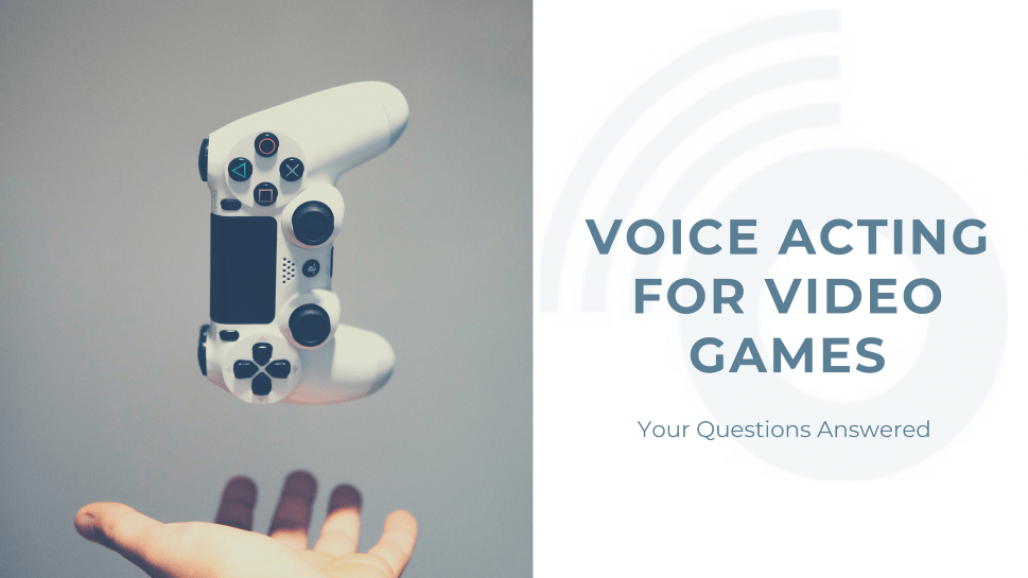Discover the magic of voice overs in gaming with OutSpoken Voices. Explore the evolution, casting, p...
Voice Acting for Video Games – Your Questions Answered

Voice Acting for Video Games – Your Questions Answered
When it comes to finding a career path as a voice actor, not many industries are as inviting as the video game voice-over industry. From video game voice acting for lead characters, NPCs, or even monsters and enemies, there are voices needed in just about every area of each video game released, so it’s a fantastic place to get your foot in the door.
Due to these inviting benefits of voice acting within the video game industry, we are always getting questions about the topic. We have decided to break down the five most commonly asked questions when it comes to how to audition for video game voice over jobs – here are the questions and answers from our colleague who deals with auditions for video games on a daily basis.
Question 1: What are castings directors looking for in an actor’s performance?
This is a great question that I receive from many voice actors looking to break into the video game industry, but the answer varies from game to game. As a general rule, casting directors are nearly always looking for a realistic and serious performance.
Big game designers have the same – if not bigger – budget as a blockbuster movie and will take the voice acting as seriously as any film director will. For smaller games, the voice acting is a huge part of the budget and they are going to want someone versatile and professional.
Question 2: How the auditions should be delivered?
Should they be recorded on the phone or in-home studios? Should they be cleaned & edited? Casting directors are looking for video game voice actors and not audio engineers, so in most cases phone recording sessions are fine. However, if you have easy access to your home setup and recording software, then it certainly won’t hurt to record it there.
Unless otherwise specified, files should be delivered in mp3 format. The client will usually tell you in the brief how they want files delivered, but in general, my advice is as follows:
- Don’t slate unless asked to.
- If you are asked to record a scene, don’t record (or have a friend record) the other lines. Just record your lines with a short pause in between.
- When recording multiple lines, don’t record the same line in three different ways, as it’s difficult to get a feel for performance and character when listening to someone repeat the same line with different emphasis/accents.
- It won’t hurt to clean and edit the file – they aren’t expecting it to be professional quality but it’s nicer to have a file without long pauses or unwanted noises.
I hope these tips helped you! However, the most important thing to remember is to re-read the instructions and follow them to the letter. These instructions are always provided for a reason!
Question 3: Does timing matter or is it ok to wait with submitting until the deadline?
This next question is something I commonly hear from voice-over actors aiming for a career in video games, but it’s actually very simple to answer. Essentially, as long as the test is in before the deadline, I wouldn’t worry. A lot of places gather all the files together before going through them, so getting it in early won’t make a huge difference.
Question 4: Do I need to play/understand games and gaming terms?
This is yet another common question - you definitely don’t need to be a gamer to be a voice actor for video games, but you do need to go into it willing to do some research.
If you don’t play games yourself, don’t panic. There are tons of ways that you can do research – simply look up some gameplay footage of popular games on YouTube and get a feel for the type of voice that will be expected.
It’s also worth looking up any terms you don’t understand because those terms usually mean something specific and indicate the size/style of the role. Here are the game development terms that seem to trip non-gamers up the most:
- Player Character/Main Player Character – This is essentially the main video game character that the person playing is inhabiting. These are the characters the player will spend the most time with and you should approach these like you’d approach a lead role in anything.
- NPC/Non-Player Character – NPCs or ‘Non-Player Characters’ are characters that the player can talk to and interact with (such as shopkeepers, or quest givers). They are usually smaller, limited roles designed to give specific information.
- Followers/Companions – Following companions are characters that assist the player. The player can interact with them, but they are controlled by the game itself. Their level of personality/complexity varies but they often require a sizeable amount of responses/dialogue as they are frequently interacting with the player. These are usually larger roles and require a lot more character voices.
- DLC (Downloadable Content) – DLC is additional content for an already released game so that players can enjoy new content. It will indicate that the game is already released and it’s worth doing some research to try and find out more. You can listen to the performances on the original game, which will give a great indication of what they are looking for from you!
Question 5: What’s the one piece of advice you can give to actors who audition for video games?
For my final point, I decided to list the question that I most commonly hear. The thing I hear most often is, ‘I love gaming, how can get more voice-over work for video games? Unfortunately, the prevalence of this question means that competition is really high.
You have to remember that for almost every role, the person casting will get 50-200+ voice talents testing for the job. My advice is to follow the briefing rules to the letter, give your best performance, and eventually, you’ll get the right role. From there, things will hopefully snowball!
Final Thoughts
We really hope that we have answered at least a few of your questions regarding voice acting within the video game niche! Undeniably, it is a competitive industry and therefore getting your foot in the door may be difficult, but the industry is only going upwards.
There are plenty of voice acting jobs for video games out there, and the number of listings will increase every year. Never get put down if you aren’t getting responses – just keep trying and refer to these questions if you ever get stuck. You will get there with hard work and determination!
Newsletter
Stay up to date with news and special offers. Get to know our new actors and features
NEED HELP?
Visit Frequently Asked Questions page or send us a question.











.png)








Comment